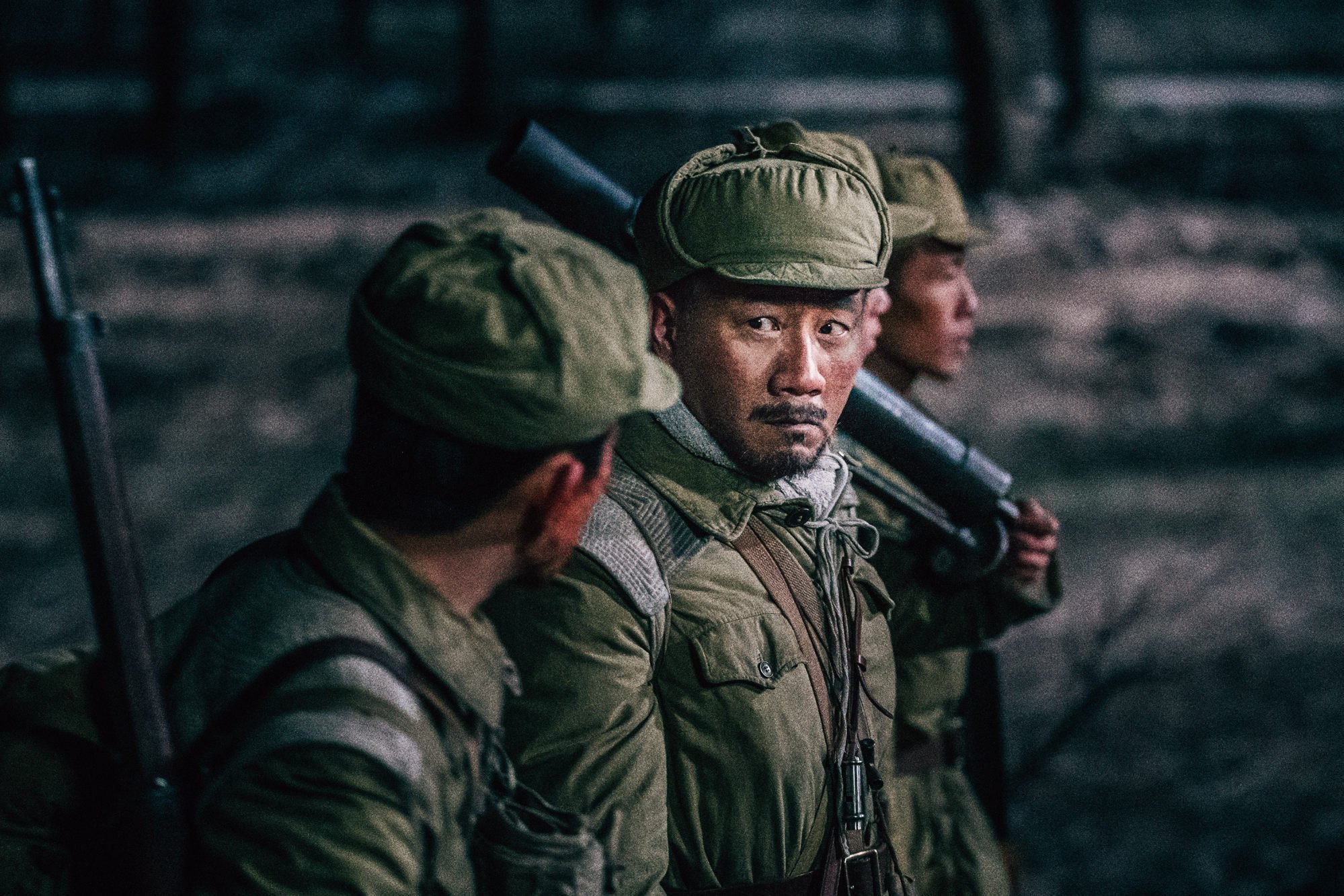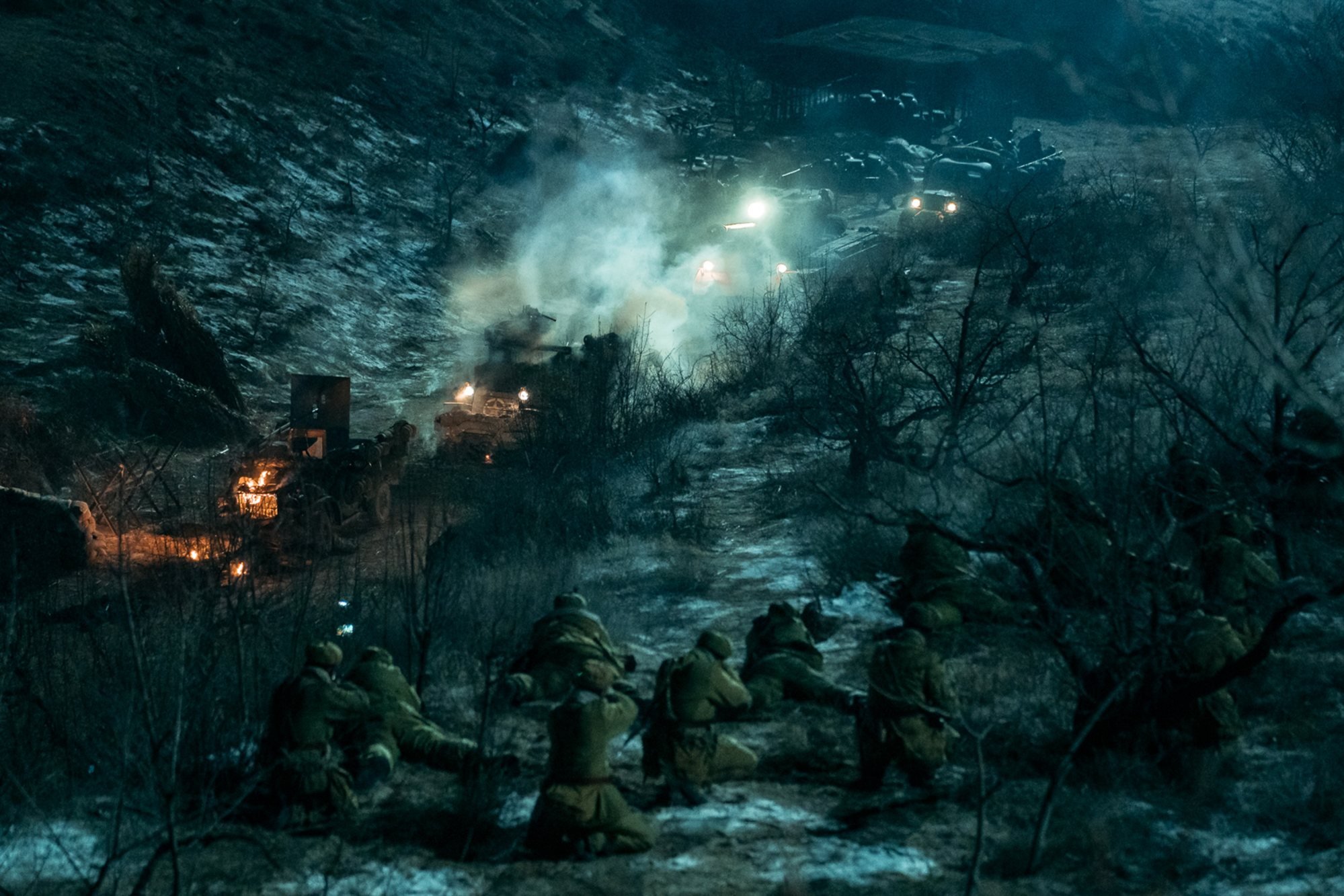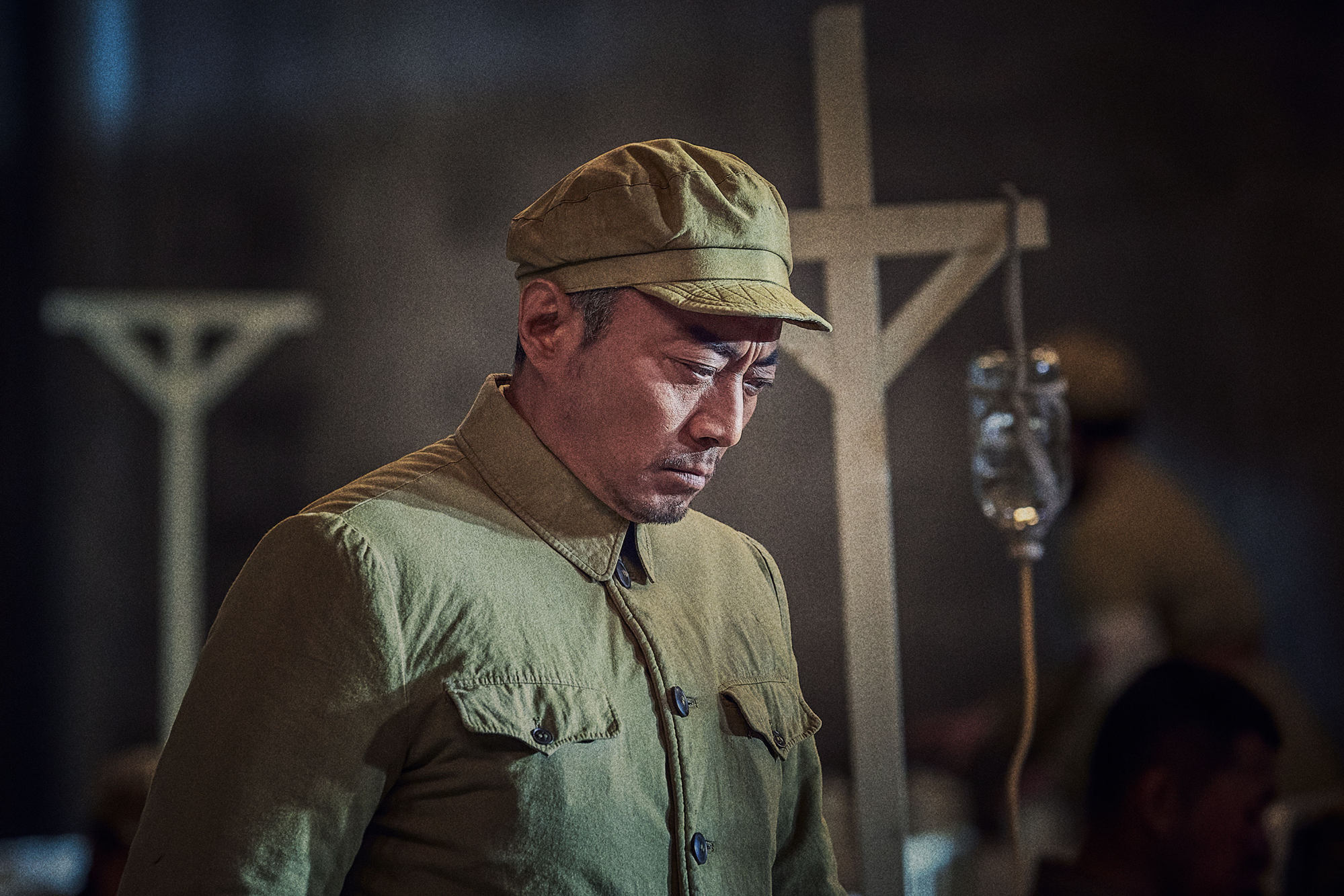
Review | The Battle at Lake Changjin movie review: 2021’s biggest blockbuster paints Chinese as earnest heroes of the Korean war
- Chinese movie depicts a pivotal Korean war battle as a fight between earnest Chinese soldiers and sadistic US troops – there’s not a Korean or UN troop in sight
- Directed by Chen Kaige, Tsui Hark and Dante Lam and starring Wu Jing and Jackson Yee, it is technically accomplished but bombastic and lacks a human story
2.5/5 stars
Directed by the heavyweight triumvirate of Chen Kaige, Tsui Hark and Dante Lam Chiu-yin, the film is a technical masterpiece, but lacks the directors’ personal flourish amid a relentless procession of breast-beating and bloodshed.
In the winter of 1950, US forces advance beyond the 38th Parallel and enter North Korea. As they close in on the Yalu River, Chinese leader Mao Zedong (Tang Guoqiang) fears they may not stop at the China-Korea border and orders a pre-emptive military strike.
What follows is a fierce 17-day stand-off in bitter, sub-zero temperatures at the lake of the film’s title, also known as Chosin Reservoir, between 120,000 ill-equipped and undernourished Chinese soldiers and around 30,000 heavily armed Americans.
While it was in fact the United Nations Command that was sent to support the forces of South Korea, The Battle at Lake Changjin refers to the enemy solely as Americans, and the Koreans themselves are nowhere to be seen in this sweeping 176-minute saga.

The film repeatedly highlights the superior military prowess of the US forces, but paints its soldiers as sadistic Yankee yokels and their commander General Douglas McArthur (James Filbird) as arrogant, self-aggrandising, and an office who regards his orders from President Truman as little more than suggestions.
Conversely, the Chinese soldiers are, to a man, earnest and pure of heart, enduring the freezing conditions and pitiful provisions without complaint. Their struggle is personified by Company Commander Wu Qianli (Wu Jing), who loves his boys almost as much as he loves fighting for his country.
He has already lost one brother in battle, but when his youngest sibling, Wu Wanli (Jackson Yee), follows him to the front, his anger soon turns to pride. This central relationship is little more than a perfunctory arc to fill time between battle scenes.

Around them, comrades Hu Jun, Zhang Hanyu and Huang Xuan, as Mao’s ill-fated son Mao Anying, are one-note stock characters adrift on such a vast canvas.
Commissioned as part of the 100th anniversary celebrations of the Chinese Communist Party, the film feels less like a page from history that has earned its moment in the sun, than a trumped-up excuse to watch China best the Americans on the big screen.


